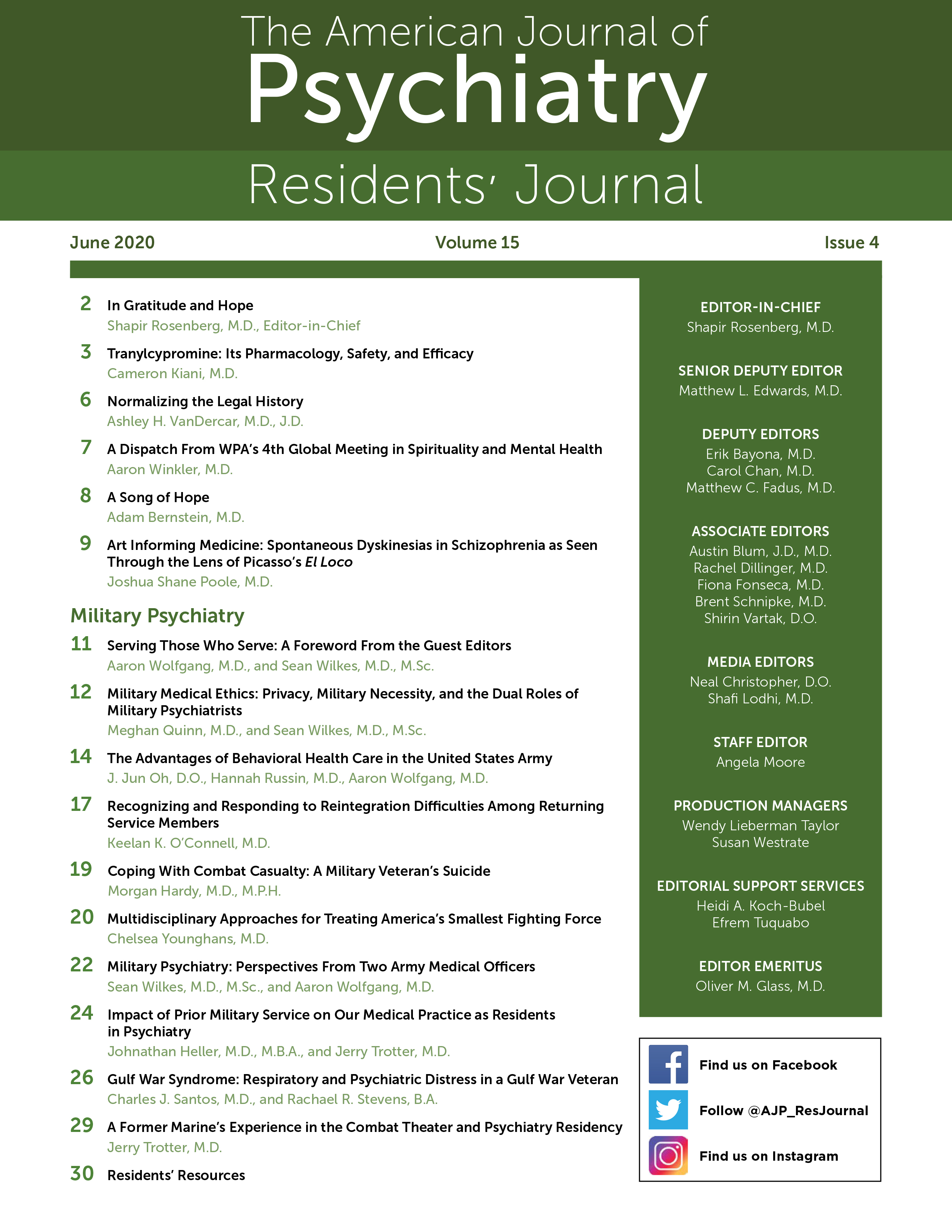When my residency program director announced that a suicide had taken place on our inpatient psychiatric ward, I had a sinking feeling that I knew who it was. Later, my chief resident pulled me aside and confirmed what I already feared. The deceased was a patient whom I had come to know well during the 3 weeks I was his inpatient doctor. He was an Army medic with over 20 years of honorable service, greatly respected by all who knew him. I was impressed by his unassuming bravery and grit, and I immediately felt a strong desire to help him. However, he was profoundly depressed and suicidal. He suffered from severe posttraumatic stress disorder both from combat and from military sexual trauma. He had seen many psychiatrists and therapists, been prescribed a litany of medications, and participated in nearly every available treatment program. I naively believed I could somehow restore his sense of self-worth and save his life, where other efforts had failed.
Losing a patient to suicide felt very different from losing a patient to cancer or pneumonia. I did not find myself shielded from the full weight of the loss by a sense of professional distance. As his psychiatrist, it had been my job to get to know the life of my patient, and thus his death was deeply personal for me—akin to losing a friend. The sense of loss was compounded by a sense of duty I felt as a military officer to leave no man or woman behind. I repeatedly asked myself, "What more could have I have done? What might have prevented this?"
My reaction, I learned, was not unique. Many psychiatry trainees who experience a patient's suicide also experience increased stress, guilt, and feelings of inadequacy (
1–
3). We place upon ourselves an undue burden of responsibility, aided and abetted by a societal misperception that suicide prevention is simply a matter of better mental health care (
4). This burden can feel even heavier in the military, where the recent epidemic of suicide has been deadlier than combat (
5). The reality is that the prevention of suicide is deceptively complex (
6). As trainees, we must recognize that we often care for very ill patients, for whom even our most sincere efforts will sometimes not be enough. This is the occupational hazard of our specialty. However, rather than cause us to emotionally distance ourselves from patients, this hazard should encourage greater compassion for ourselves and those we serve.
I learned these lessons when I attended my patient's funeral service, which was complete with full military honors. As I stood and saluted his casket, listening to the three-volley salute, I reflected on the sacrifices that my patient—and so many others like him—had made. He spent his life serving his country and paid the ultimate price of freedom. A solemn sense of gratitude gradually replaced my feelings of guilt and self-doubt. It was by honoring his death in this way that I found my own path to healing.
